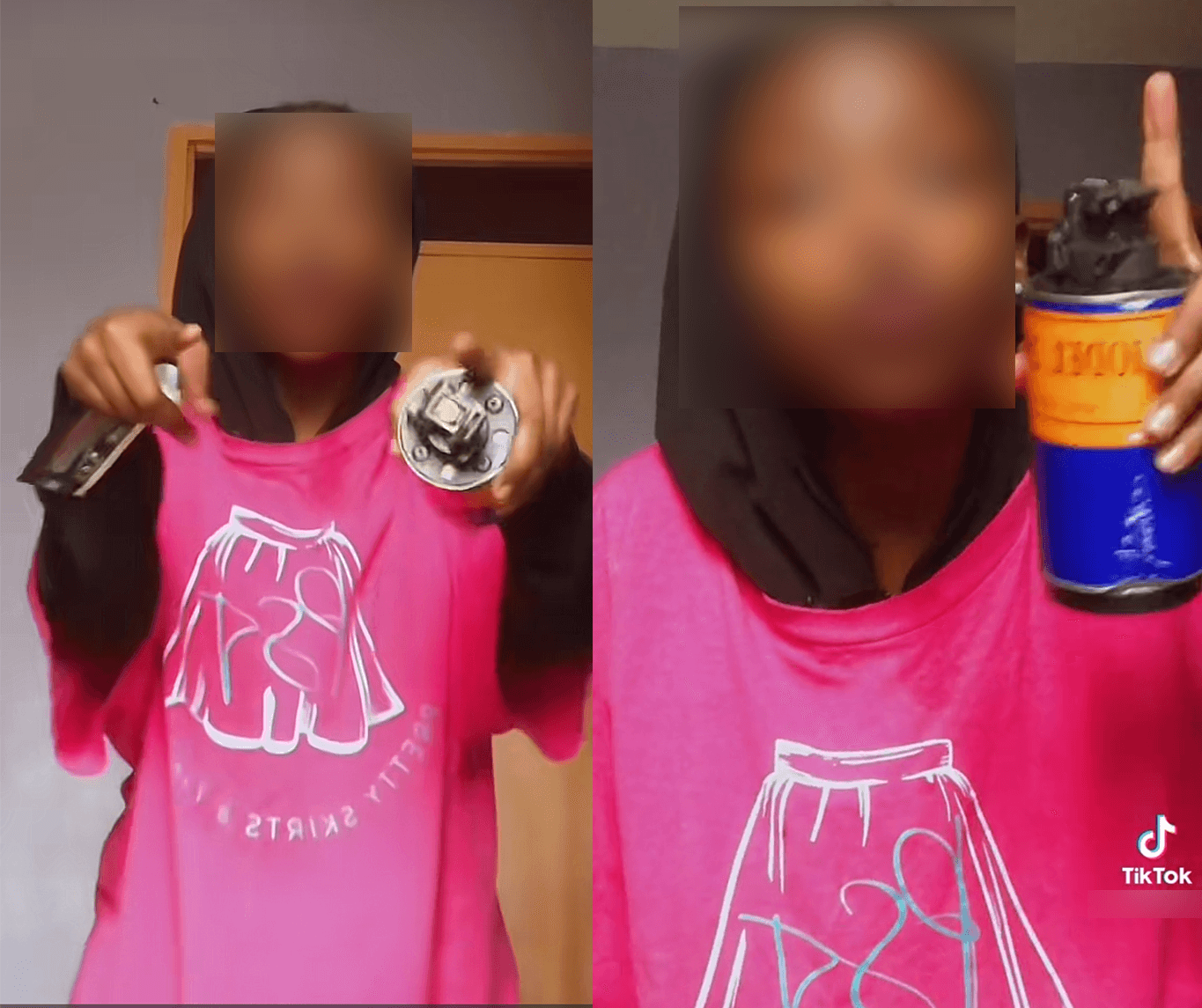TikTok Refugees: How the Ban Took an Unexpected Turn
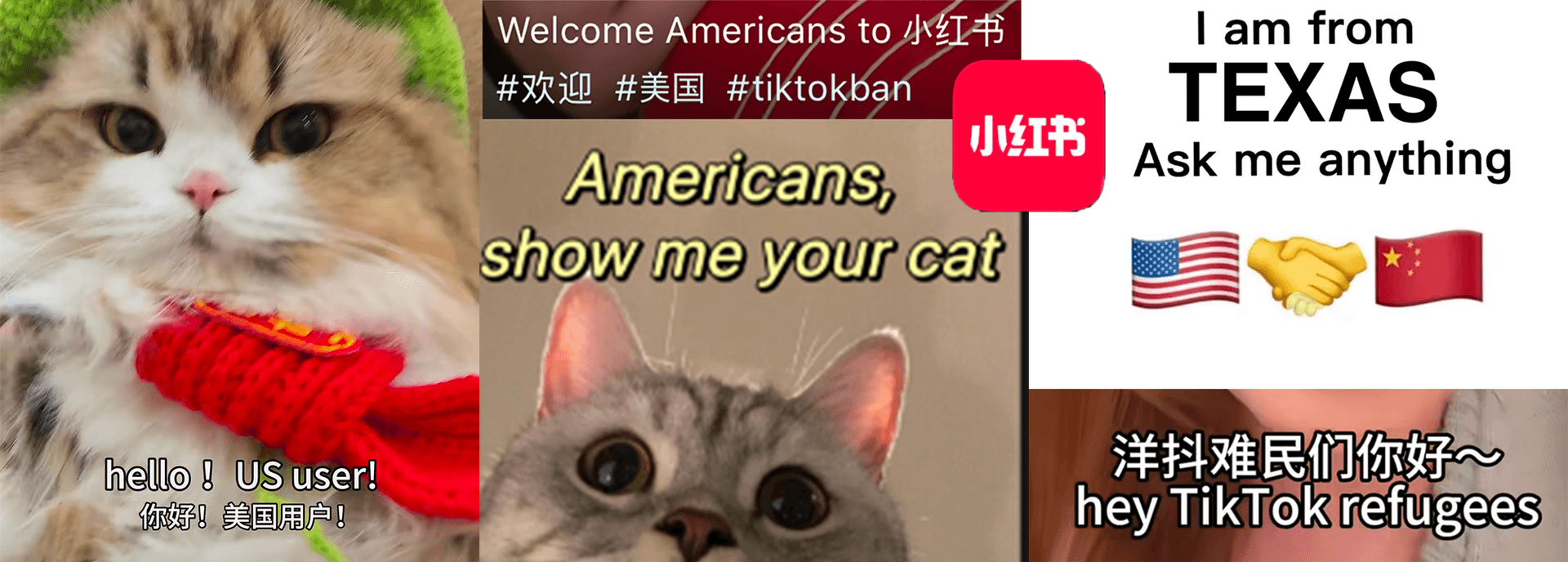
In recent years, TikTok has transformed from an app initially popular for lip-syncing videos into a global platform with over a billion users. Its meteoric rise has not only redefined entertainment but also ignited debates on data privacy, national security, and digital sovereignty. As governments worldwide grapple with TikTok’s influence, the decision to ban the platform has emerged as a contentious issue.
The primary justification cited by countries considering or implementing TikTok bans is national security. Concerns stem from TikTok’s ownership by ByteDance, a Chinese tech giant. Critics argue that Chinese data laws could compel ByteDance to share user data with the Chinese government, potentially jeopardizing sensitive information.
For instance, in the United States, legislators have expressed fears that TikTok could be used for espionage or to manipulate public discourse. Similar concerns have been echoed in India, which banned TikTok in 2020 alongside dozens of other Chinese apps, citing cybersecurity and user data risks amid geopolitical tensions. Beyond security, cultural and societal concerns also play a role. Governments in countries like Indonesia and Pakistan have temporarily banned TikTok over allegations of promoting content deemed inappropriate or immoral.
For millions of users, TikTok is more than an app—it’s a livelihood. Content creators rely on the platform to reach audiences, build personal brands, and monetize their videos. TikTok ban left thousands of creators searching for alternatives to sustain their careers. Some transitioned to Instagram Reels or YouTube Shorts, platforms introduced by Meta and Google to replicate TikTok’s format of short, instantly changing videos and high-response algorithms tailored to users’ interests. The decision to ban TikTok also coincides with Meta’s announcement to replace fact-checkers with community notes, a move similar to X’s earlier approach.
Both platforms have been mocked on TikTok itself, where users have created memes like “post it on Instagram Reels” to imply that a video would attract aggressive and mean-spirited comments on platforms other than TikTok:


Internet culture has responded rapidly to the TikTok ban decision, with new memes and terminology reflecting users’ frustrations. Many have flocked to alternative platforms like Xiaohongshu (Little Red Book or RedNote), a Chinese social media app, adopting the self-imposed label “TikTok refugees.” The label “refugees” serves as both a critique of platform restrictions and a symbol of the shared experience among displaced TikTok users. The migration of American TikTok users to Xiaohongshu has sparked a wave of humor, creativity, and unexpected cultural exchange on the platform. Chinese users quickly embraced the influx of displaced users, coining memes and engaging in lighthearted interactions that highlight both the novelty and the community spirit of this digital convergence.
Xiaohongshu users were quick to acknowledge the arrival of the so-called “TikTok refugees,” crafting memes to poke fun at the situation while extending a warm welcome. Posts humorously depicted the platform as a “refugee camp,” complete with imaginary borders, visa requirements, and cultural orientation programs for newcomers. Some users created guides for “surviving Xiaohongshu,” teaching TikTokers how to navigate the app’s layout and features. Others shared mock PSAs, reminding fellow users to “be kind to the refugees—they’re still adapting.”
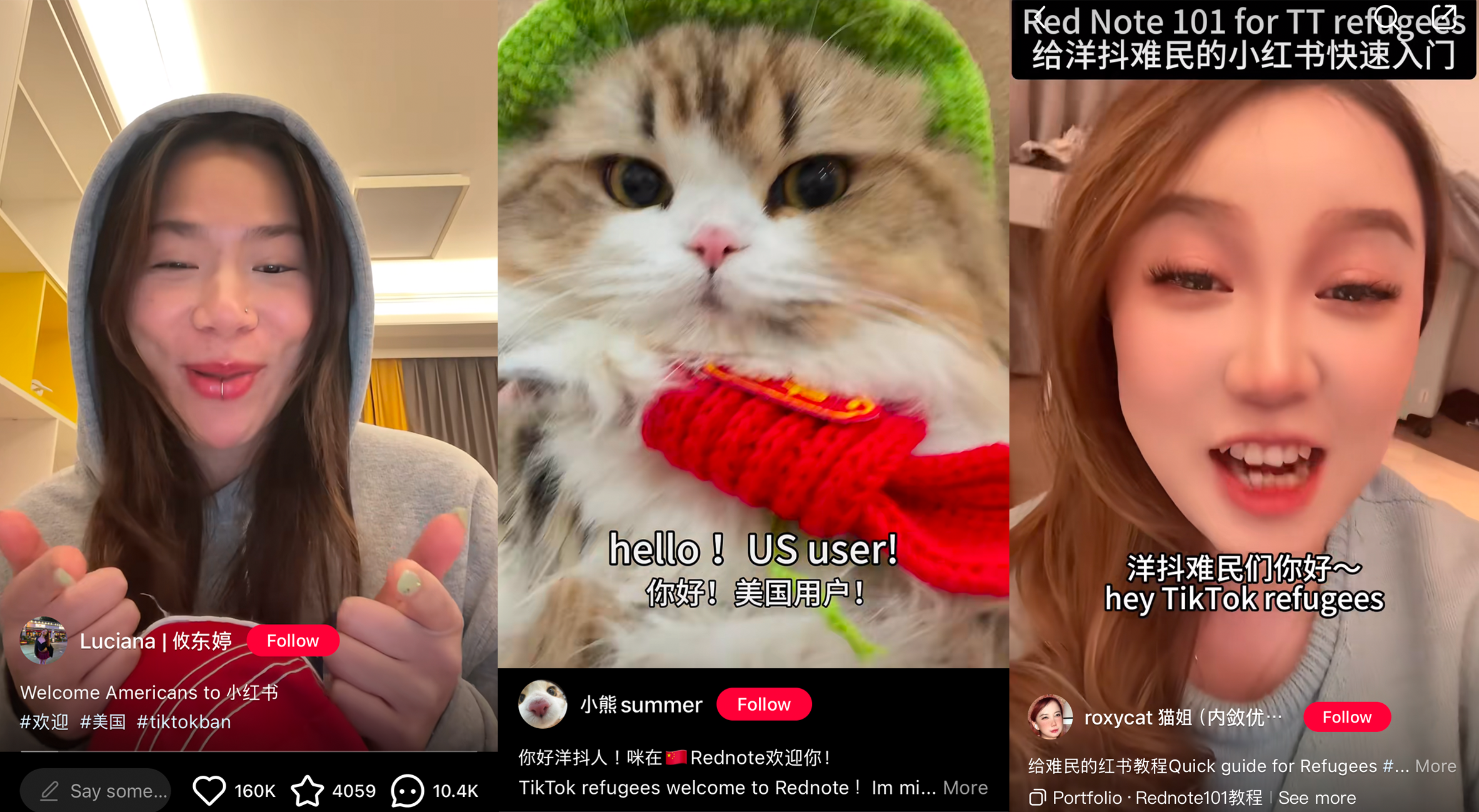
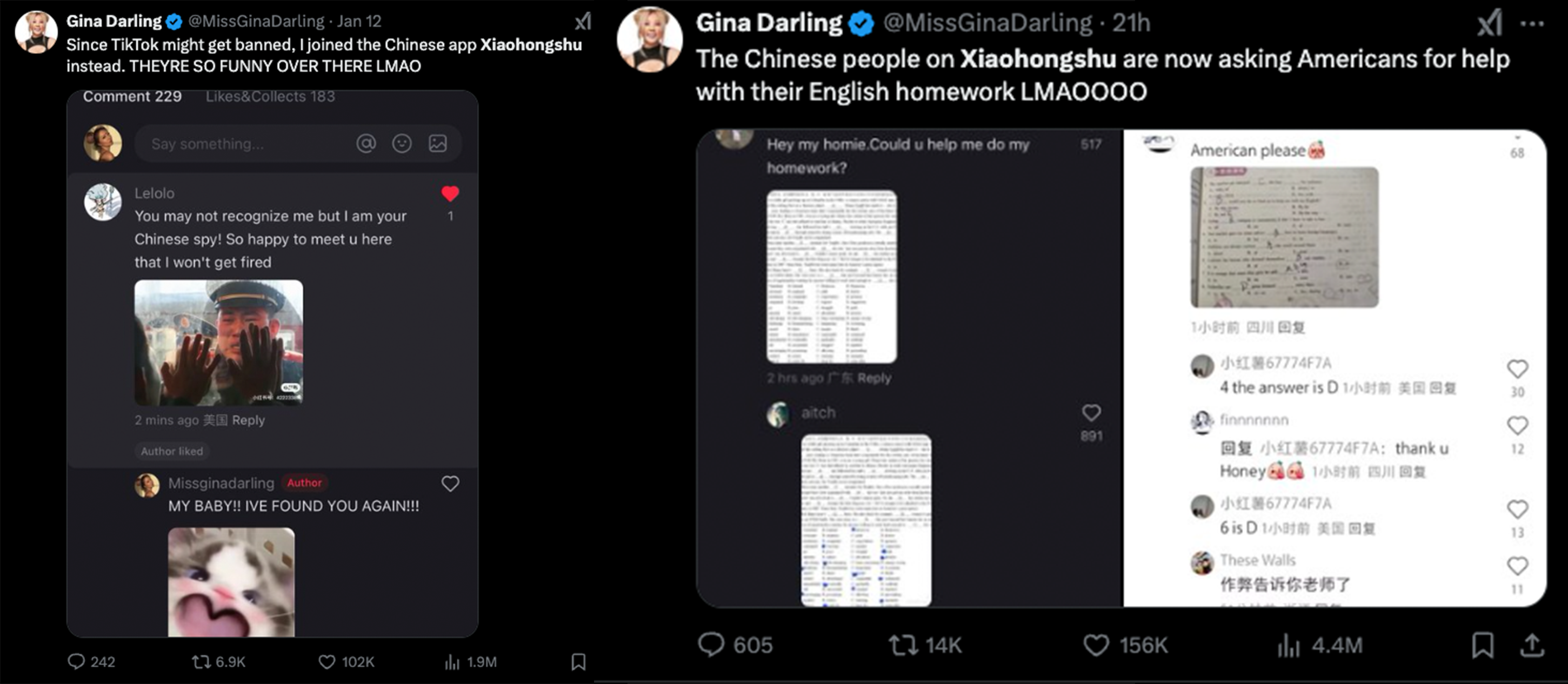
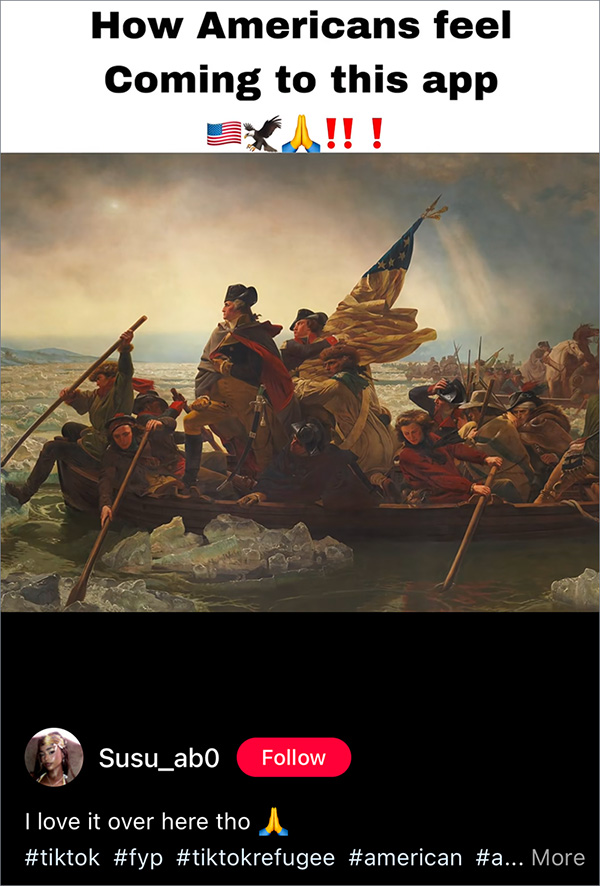
This unexpected cultural intersection has also sparked genuine exchanges between communities. Many Xiaohongshu users shared pictures of their cats, families, and daily lives as a way to introduce themselves and create connections. In return, American users posted snapshots of their pets and personal moments, reciprocating the gesture of goodwill. More and more videos on Xiaohongshu are now being dubbed with English subtitles or Mandarin text (by former TikTok creators), which is a recent development, as the platform was previously entirely in Mandarin.
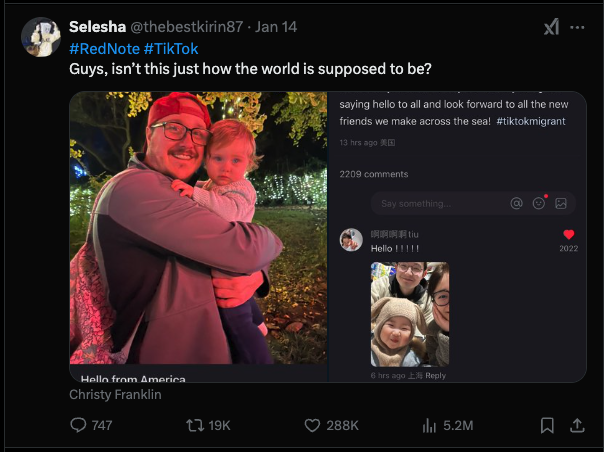
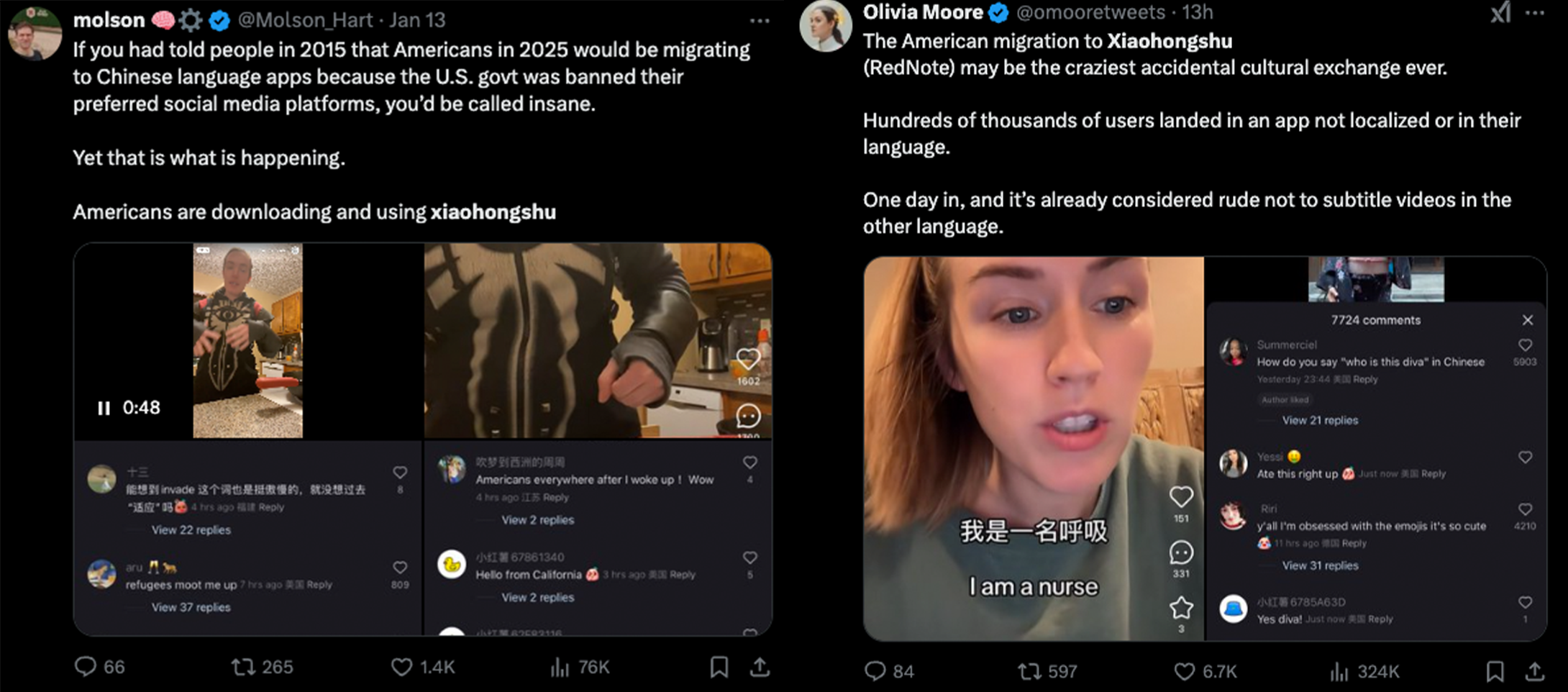
The keyword Xiaohongshu went quickly to the top discussion on Twitter. It also became the most downloaded application at the AppStore:
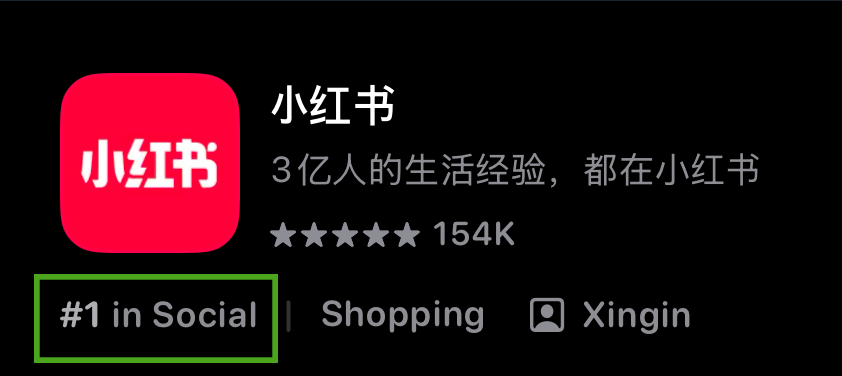
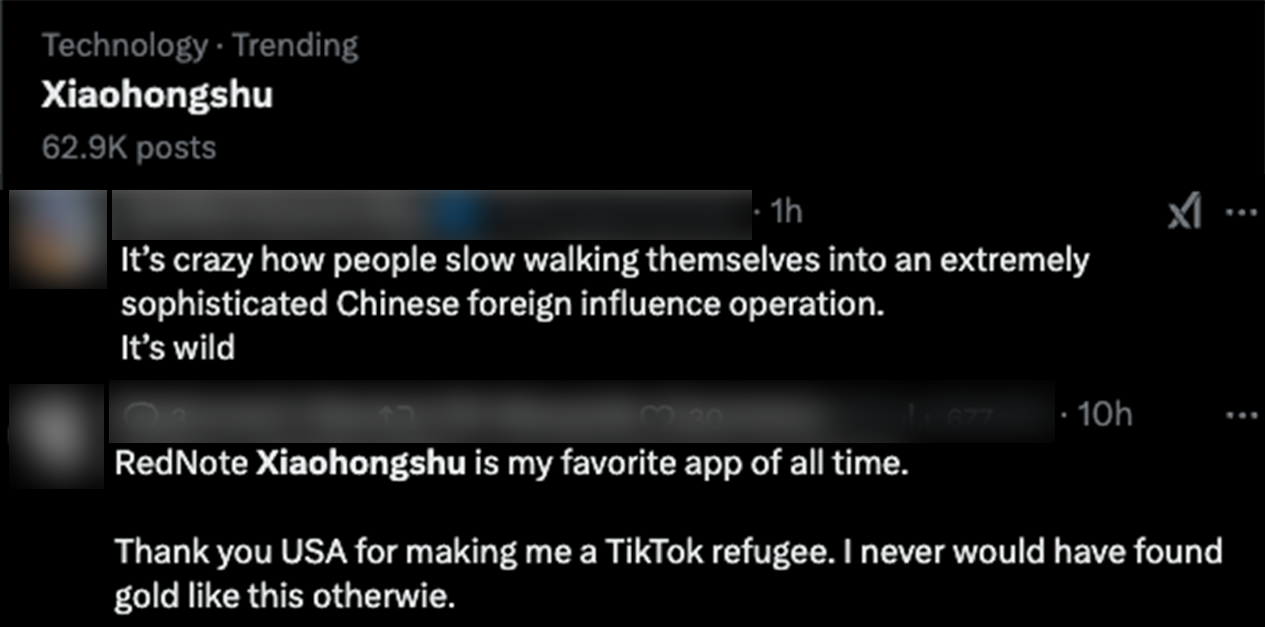
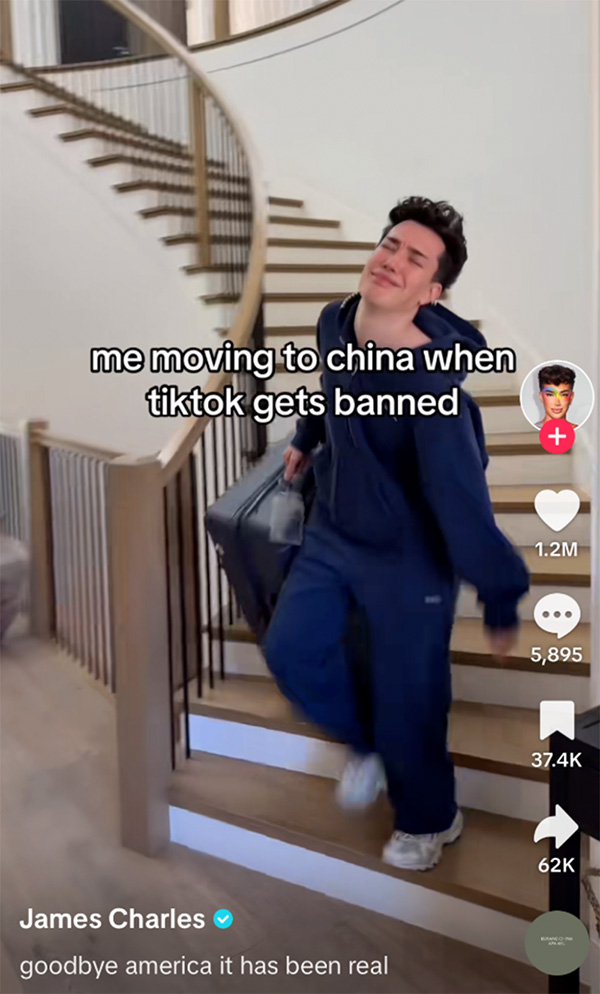
The lighthearted reception and exchange of memes on Xiaohongshu reflect a unique moment in digital history. While the migration of TikTok users was born out of political and regulatory tensions, the warm and humorous response from Xiaohongshu users highlights the power of shared interests in bridging cultural divides. However, this shift also underscores a deeper trend: the increasing willingness of users to prioritize their favorite apps and digital communities over concerns about national security and foreign influence. The growing adoption of Chinese platforms like Xiaohongshu signals a subtle but significant expansion of Chinese cultural influence, driven more by user preferences than geopolitical considerations. In an increasingly fractured online world, this dynamic raises questions about the balance between digital convenience and national interests.
More from the author


